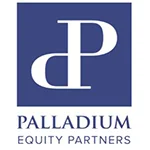 Rick Gould Rick Gould |
The U.S. business world is facing a plunge into unchartered waters. None of us can foresee the bottom or estimate the number of months it will take to rebound. As the PR industry decides the best course ahead, I’ll offer some suggestions based on benchmarking the industry for the past three decades of good times and bad.
In one chapter of my book “The Ultimate PR Agency Financial Management Handbook,” published in late 2016, I outline How to Recession Proof your Firm. While at that time the PR industry was steadily growing—at an 8.8 percent rate—I noted: “Let’s not take it (growth) for granted. Let’s plan for the next recession because it will surely happen when we least want it.”
Fast-forward three-plus years to March 2020. Many firms learned from the lesson of the Great Recession of 2007-2008. They implemented procedures and best practices to be ready for the next recession. We’re now at the start of the next “new” recession. And these firms are ready, having powered investment dollars back into their firm, hired quality staff, adopted the best technology and retained experienced outside consultants to assist them in financial, legal and HR issues and challenges.
They all managed by the numbers, by best practices and proven benchmarks. They kept labor costs at no more than 50 percent of net revenues (fees + mark-ups). They kept operating expenses around 25 percent, including rent at six or seven percent. The resulting profit of 20-25 percent gave them the profitability needed for increased valuation and the reserves needed to survive the next “new” recession that’s now upon us.
Back in 2016, we recommended diversifying specialties, building a dedicated team to grow that specialty. Tech, financial/IR and travel specialties suffered substantially in the last recession. Did those firms create additional specialties like healthcare, consumer or digital? Those that did this in a deliberate, measured way—versus in panic or survival mode—will be less exposed today in the initial phase of the “new” recession.
They’ll maintain their brand equity. They have quality clients and an extraordinary second-tier of management. Their investment is once again paying off. They made their brand unique, important, relevant and lasting.
Those that took those steps are better positioned to navigate the days ahead. For those not in such a solid position, it’s not too late to mitigate the impact of the “new” recession. Some of the following tips were previously documented in my book, while others consider the industry disruption of the past three years.
You may need to lay off staff if client revenues are lost. If you have cash reserves for a couple of months you can keep staff and hope things will get better. It takes courage—it’s painful to lay off staff—but you need to set a financial threshold now regarding when you’ll take that action.
Cut non-staff costs wherever possible: freelancers, temporary help, non-essential travel and entertainment.
Freeze hiring unless for a critical position. All staff needs to work harder and longer to get through the recession. Give discretionary bonuses to staff members who deliver top performance after the firm is over the hump. Any staff members not willing to carry heavier loads should be the first to go if layoffs are needed.
Defer raises and bonuses other than for lower-level account and admin staff who count on their bonuses to survive.
Owners and management should take pay cuts. They received big raises and bonuses when times were great, and now they must share the burden.
Use the many conferencing and video technologies available to maintain daily contact with staff working remotely, starting with a 15-30-minute call to begin and end the day.
Tightly manage staffing levels and the mix of account teams. Staff should know their commitment to efficiency and productivity is necessary and expected, particularly to work within revised client budgets to assure profitability.
Managing and promoting your pipeline is imperative, especially in a recession.
Meet the recession head on. What’s needed is leadership, discipline and the guts to do what’s best for the firm (i.e., cost-cutting and belt-tightening across the board). The best PR agency CEOs are smarter as a result of previous recessions. Having gone through it, they’ve built up cash reserves and learned how to manage by the numbers. They have also been open to advice by professionals who are in a position to help them.
There’s no crystal ball for how long this recession will last. Adhering to the above tips should assist you in surviving this “new” recession and thriving when it ends.
***
Rick Gould is Managing Partner of Gould+Partners, a New York-based merger and acquisition consultancy specializing in the PR industry. He can be reached at [email protected].


 Spectrum Science acquires clinical trial recruitment and engagement solutions provider Continuum Clinical.
Spectrum Science acquires clinical trial recruitment and engagement solutions provider Continuum Clinical. How PR agency owners can navigate the M&A process in a way that yields a rewarding experience for both owners and the teams they leave behind.
How PR agency owners can navigate the M&A process in a way that yields a rewarding experience for both owners and the teams they leave behind. Ten potential ways an agency sale can positively benefit team members and employees.
Ten potential ways an agency sale can positively benefit team members and employees. Kekst CNC reps Palladium Equity Partners and its joint venture affiliate, Palladium Heritage, on the acquisition of National Auto Parts, USA;, NAP San Diego; and National Auto Parts-Oakland to form Collision Auto Parts, a platform serving customers in the automotive aftermarket collision repair sector.
Kekst CNC reps Palladium Equity Partners and its joint venture affiliate, Palladium Heritage, on the acquisition of National Auto Parts, USA;, NAP San Diego; and National Auto Parts-Oakland to form Collision Auto Parts, a platform serving customers in the automotive aftermarket collision repair sector. ICR has acquired Bullfrog + Baum, the 23-year-old PR shop focused on the hospitality, lifestyle, travel and consumer marketing sectors.
ICR has acquired Bullfrog + Baum, the 23-year-old PR shop focused on the hospitality, lifestyle, travel and consumer marketing sectors.


 Have a comment? Send it to
Have a comment? Send it to 
No comments have been submitted for this story yet.